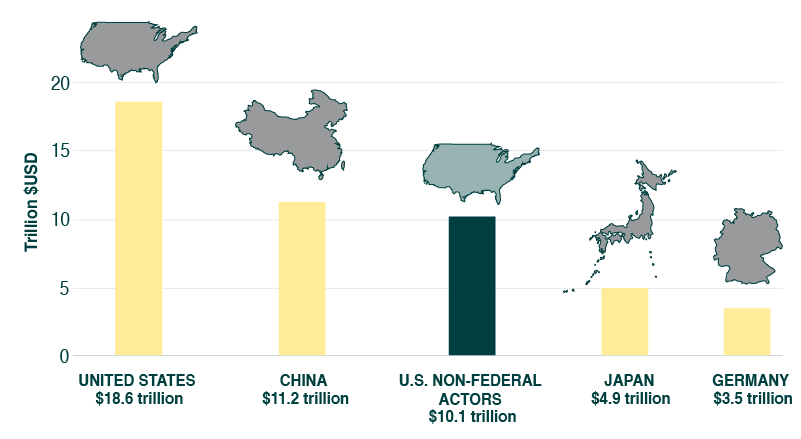Millions of people around the world have suffered and continue to suffer from extreme weather events. The fact of the matter is that this may only be the start – a preview – of what is to come. Never before have we met with a greater sense of urgency, we no longer have the luxury of time.
Patricia Espinosa, UNFCCC Executive Secretary
.
From November 6th to November 17th, over 200 nations have gathered for the 23rd United Nations Framework Convention on Climate Change (UNFCCC) to advance the goals of the Paris Agreement and achieve progress on its implementation guidelines.
The annual meeting is the first following the withdrawal of the largest economy in the world in June 2017. The United States announced its withdrawal from the accord, citing disadvantages to the country that benefit other nations more so than the American population itself. Despite President Trump’s rhetoric against climate change, the country is now facing a crossroad with the release of the Climate Science Special Report, establishing that human activity has in fact been the prime contributor to climate change over recent decades.
Despite the federal announcement withdrawing the US from the Paris Climate Agreement, US governors, cities and businesses continue to show their support in reducing the impact of climate change. Representatives from 15 states and over 300 cities in the US have attended COP 23. While the inaction at a federal level has left a leadership vacuum, the private sector is filling the void in actively joining and endorsing international efforts to fight climate change. As the innovators in society, the UN estimates that if non-state actors implement emissions reduction technologies, global emissions could be reduced by more than what’s needed to reach the target by 2030.
.
The Emissions Gap in 2030
Source: UNEP, Emissions Gap Report
.
In accordance with international pro-environmental efforts, the business community is taking proactive steps towards reducing their environmental footprint. Policies and actions incorporating environmental issues are finally being embedded into business strategy alongside monetary and fiscal targets, ensuring that reducing climate change will remain at the forefront of the private sector’s focus:
- We Are Still In. A coalition of US economic, education, and local government leaders that continue to abide by the Paris Agreement regardless of America’s withdrawal. The coalition represents 120 million Americans and $6.2 trillion of the US economy. The group includes 125 cities, 9 states, 902 businesses and investors, 183 colleges and over 20 businesses from the Fortune 500.
- Statement on Fiduciary Duty and Climate Change Disclosure (The Climate Statement). Launched in 2014, the group is a shared commitment by a coalition of 155 multinational companies and 33 ultra high net worth investors from around the world to produce and use climate-related information in mainstream reporting to identify risks and opportunities for stakeholders.
- We Mean Business. 634 international companies committed to bold climate action, recognizing the transition to a low-carbon economy is the only way to secure sustainable economic growth and prosperity for all. The coalition includes 1078 commitments and represents $15.5 trillion in market capitalization to date.
89% of the world’s largest companies have now set carbon emissions reduction targets, with a fifth planning low-carbon strategies to 2030 and beyond. Major corporations including Exxon Mobil, Microsoft, General Electric, Tesla, and Apple have warned of long-term economic consequences due to climate change and are joining the efforts to reduce greenhouse emissions along their processes and supply chains. The private sector is now a key agent in the fight against climate change and its commitment to innovation will continue to provide the sustainable solutions required for mitigating climate change moving forward.
.
Gross Domestic Product of Largest Countries Supporting the Paris Agreement
Source: America’s Pledge (2017)
.
The international cooperation seen at the COP23 has shown the united commitment to protect the planet and create policies between the private and public sector aimed at driving change in our environment. As global citizens, we have a responsibility to not ignore the biophysical factors that have the potential to disrupt our economies and societies.
At Unique we are committed to the improvement of our environment, our societies, and our economies. With this commitment in mind, our work is based on a regenerative business model through ecological agricultural projects across Brazil, while reducing our environmental footprint at every level of our business operations. In a world demanding of higher social responsibility, business must be sustainable to survive in the long-term and ultimately ensure a more tenable future for us all. The climate change agenda can not be delivered by governments alone.

